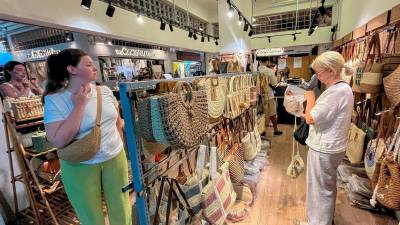PETALING JAYA: For Visit Malaysia 2026 to succeed, the country must turn rising costs in tourist hotspots into an opportunity to build transparent, inclusive and sustainable tourism that benefits both locals and visitors.
Universiti Teknologi Mara’s Academy of SME and Entrepreneurship Development coordinator Dr Mohamad Idham Md Razak argued that rigid price caps should be avoided as they risk deterring investment and weakening service quality.
“Instead of limiting prices, Malaysia has a powerful opportunity to build trust through transparency and innovation. By mandating clear digital price displays, launching real-time comparison platforms and supporting small businesses with grants for upgrades or energy efficiency, the country can ensure fair pricing without stifling growth,” he explained.
He warned that while capping prices may look like a quick fix, it risks undermining innovation.
He added that Malaysia’s competitiveness depends on offering authentic, reliable and fairly priced experiences.
By investing in clean infrastructure, training entrepreneurs, promoting certified operators and showcasing cultural richness over low-cost gimmicks, Malaysia could attract higher-spending travellers who value safety, consistency and meaning.
“Such an approach makes tourism a sustainable engine of inclusive growth, where businesses thrive because they deliver value, not because they are forced to lower prices.”
Mohamad Idham noted that 60% to 70% of recent price increases stem from genuine inflationary pressures – wages, rents, utilities and global supply chain costs – while 30% to 40% reflect market behaviour that could be improved.
“With better data, public awareness and targeted enforcement, Malaysia can distinguish between legitimate cost increases and unfair markups. That way, businesses adapting responsibly can rise with the times, while every tourist feels respected and treated fairly.”
He cautioned that unchecked markups could create a “tourist-only economy” that sidelines locals, but emphasised Malaysia could counter this by involving communities in planning, supporting affordable housing near hotspots and promoting shared ownership models such as cooperatives and homestays.
“When residents benefit directly from visitor spending through jobs, income and pride, tourism becomes more inclusive and resilient, preserving culture while driving lasting prosperity. This is not a threat, but an opportunity for locals and visitors to thrive together.”
He cited Thailand’s certification schemes, Vietnam’s price-display rules and Bali’s community-set rate guidelines as examples that fairness and growth can go hand in hand.
“These models prove fairness and growth are not opposites, but partners. Malaysia can build something even better, rooted in its diversity and spirit.”
Rejecting dual pricing based on nationality, he argued it risked making tourists feel unwelcome.
Instead, he suggested rewarding locals through loyalty programmes, holiday discounts or cultural promotions while keeping public-facing prices consistent.
“Informal dual pricing, where locals or those speaking certain dialects are charged less, is common but also a chance for Malaysia to lead with integrity. By promoting universal pricing through QR menus, fixed-rate kiosks and mobile apps, the country can eliminate confusion and build trust.”
He added that vendors should be trained to embrace hospitality as a core value rather than a negotiation tactic.
“This is not just good economics. It is the foundation of a modern, confident and welcoming nation that takes pride in its openness and kindness.”
Mohamad Idham said by investing in clean infrastructure, training entrepreneurs, promoting certified operators and showcasing cultural richness over low-cost gimmicks, Malaysia could attract higher-spending travellers who value safety, consistency and meaning. – Amirul Syafiq/theSun
